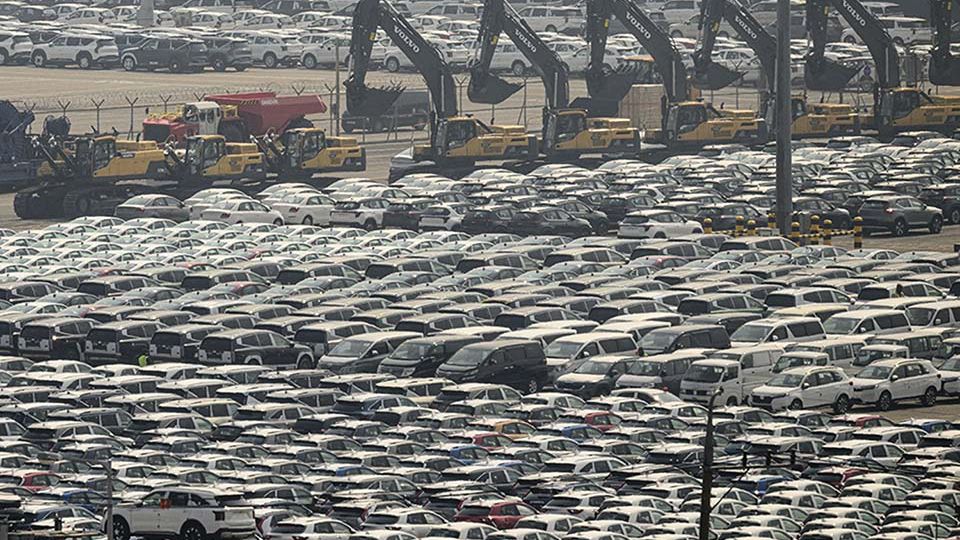April 9, 2025
SEOUL – China will impose a reciprocal 34 percent tariff on all imports from the US from April 10. It also placed export restrictions on rare earth elements.
These moves are being made in retaliation for US tariffs on all Chinese goods imported into the US.
Then, US President Donald Trump said, “China has been hit much harder than the USA, and told Americans to “hang tough, though it won’t be easy.”
China and the US are the two biggest export markets of South Korea. If their trade war is prolonged, Korea’s economy will suffer greatly.
US reciprocal tariffs on many countries are much stiffer than expected.
Under an executive order signed by Trump, a 25 percent “reciprocal” tariff on South Korean products imported into the US will become effective on April 9.
This practically neutralizes the Korea-US free trade agreement, which went into effect in 2012.
The US levied a 34 percent tariff on China and a 46 percent tariff on Vietnam. China and Vietnam are countries that South Korean companies utilize as their production bases. Exports to the US through the countries will decrease.
If Chinese goods are released into markets other than the US due to the tariff barrier, South Korea will face stiff Chinese competition in the markets.
South Korea’s real gross domestic product grew a slight 0.066 percent in the fourth quarter of last year from the previous quarter. According to the Bank of Korea, the country’s growth ranked 29th among 37 countries — 36 members of the Organization for Economic Cooperation and Development and China.
JP Morgan Chase said Saturday it expects real US GDP to contract to minus 0.3 percent from its previous estimate of 1.3 percent due to the likely impact of tariffs announced by the Trump administration. US recession could undermine South Korea’s exports. Some economists predict a negative growth of South Korea in the first quarter.
For Korea, it would be difficult to make retaliatory responses like China and the European Union. The country cannot but attempt to negotiate with the Trump government.
Regrettably, it is not as ready to respond as other nations due to political turmoil. The president was impeached and the consequential presidential election will be held on June 3. Yet it cannot sit still bound by political issues.
Summital contacts would be difficult due to leadership void until the presidential election, but on the working level, meticulous preparations should be made.
Seoul should persuade the Trump administration with concrete data and convincing justifications showing that South Korea contributes to the US economy.
It needs to drive home that the “reciprocal” tariff on South Korea is unbalanced in many respects. The rate is the highest among countries that have free trade agreements with the US. South Korea was the largest foreign direct investor in the US, committing $21.5 billion last year.
Korea should refute US misunderstandings and fallacies about South Korean non-tariff barriers. In 2024, Korea’s effective tariff rate for goods imported from the US was 0.79 percent thanks to the free trade agreement, but the Trump administration claimed it was 50 percent. The assumption is difficult to understand.
It is seriously lopsided to levy a tariff of just 0.79 percent on goods imported from the US while a 25 percent tariff is charged on Korean goods imported into the US.
The US is said to hope for Korea’s cooperation in the fields of shipbuilding and energy. This could be a good bargaining chip for Seoul.
Late last month, the Korean government said it would push for a new 10 trillion won ($6.8 billion) supplementary budget to recover from wildfire damage and stimulate domestic demand.
Support for exporters to the US should be expanded in the budget.
An extra budget is the best possible way to cope quickly with the dire economic situation. Legislators should pass the supplementary budget bill as soon as possible. They should not neglect economic and trade issues to focus on the presidential election.


